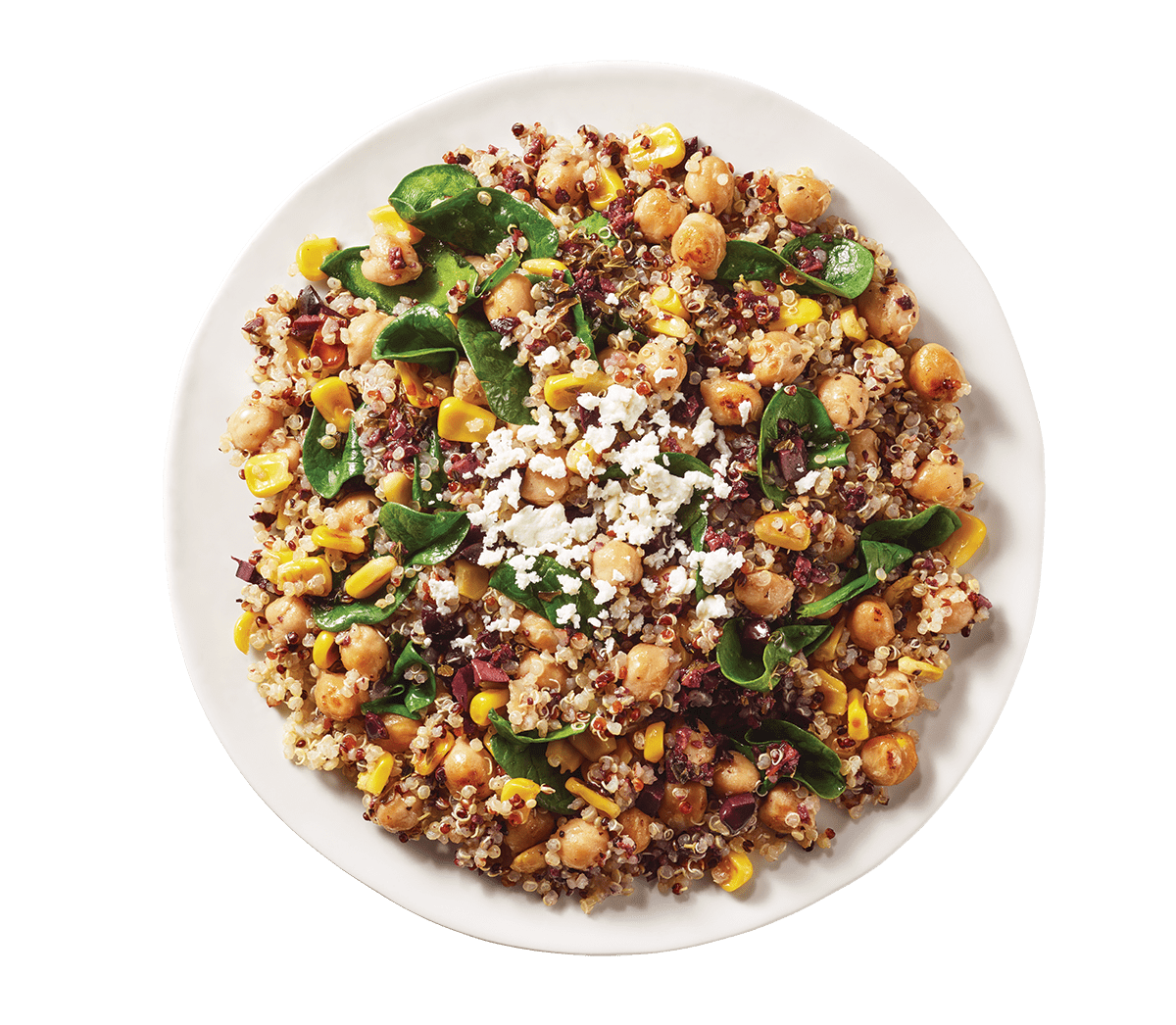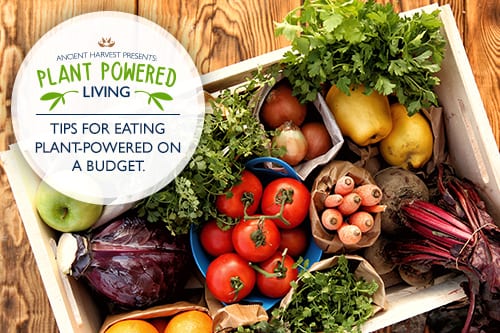A common misconception about plant-powered living is that it costs more to eat a more plant-centric diet. But with a little know-how, you might just find yourself surprised by how affordable a delicious, colorful and nutritious plant-powered menu can be. To get you started, try these helpful tips for eating plant-powered on a budget:
Know your proteins.
The next time you’re at the grocery store, make a point to visit the aisle that has dried grains and legumes. Beans, lentils, quinoa and other ancient grains are packed with plant-based protein – and a few bags (with which you can make multiple nourishing meals) will likely cost you far less than meat, poultry or seafood.
DIY your snacks.
Many nutritious, plant-based snacks – think roasted chickpeas, kale chips, hummus – are easy to make yourself for a fraction of the cost. Learning to purchase whole ingredients and DIY your plant-based snacks can greatly reduce your monthly grocery bill – and, as a bonus, you’ll always know exactly what’s in them.
Cook in batches.
Preparing foods in bulk to be eaten throughout the week is not only a great way to save money, but to save time as well. Stewed beans and lentils, soups, pastas and whole grain salads are all good things to make in large batches, because they keep well throughout the week – and when compared to store-bought or restaurant versions, are far less expensive. You can even consider freezing portions to extend the shelf life of your meals even further.
Stock your pantry.
It’s always good to have pantry staples like canned tomatoes, jars of olives and artichoke hearts, and dried gluten-free pastas, quinoa, gluten-free oats and other grains on hand for those times when you’re hungry but don’t have the time or energy to go grocery shopping. These items last much longer than fresh fruits and veggies, and are easy to throw together on the fly to create a nutritious and tasty plant-based meal.
Plan everything.
Before heading to the store, take inventory of your pantry, freezer and fridge to better arm yourself and avoid purchasing unnecessary duplicates. Then make a list of the things you need to prepare enough meals for the week. Using an actual list will help keep you on track – especially if you are shopping while hungry, which is when you are most likely to purchase unneeded items. Also, when buying fresh fruits and veggies, consider which are first to spoil – and plan on incorporating those into your meals earlier in the week, so as to minimize waste. Remember that things like fresh berries and delicate leafy greens – which are some of our favorite things to eat this time of year – have a particularly short shelf life.
For culinary inspiration to help turn these tips into weeks’ worth of delicious and nutritious plant-powered meals, be sure to visit the recipes page at AncientHarvest.com.



